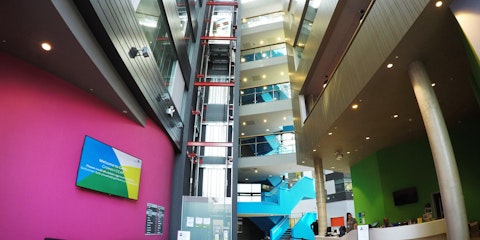English Language - A2
About this course
The English Language A2 programme follows on from AS English Language and should be taken in conjunction with two or three other subjects and the Welsh Baccalaureate. At A2, students will be expected to show deeper understanding and knowledge of phonology, orthography, etymology, lexis, semantics, morphology, grammar and discourse.
What you will study
There are three units for A2 English Language. Two of the units are written examinations and one unit is an independent investigation. All units must be undertaken.
Candidates will gain an appreciation of language over time, whilst gaining knowledge of child language acquisition and phonemic symbols.
Unit 3: Language over Time (written examination) 1hr 30m (20%)
This unit is based on the study of unseen written texts from different periods, linked by genre. There will be three texts, none earlier that 1500, and students will be expected to answer two questions:
Question 1: Candidates will answer several short questions based on archaic language features from the texts.
Question 2: Candidates will write an extended response (essay) in which they explore, analyse and evaluate the contextual factors through close reading of the texts by describing the key features of language change, using associated terminology accurately and making connections across the texts in light of a given focus. Responses will need to demonstrate the candidate’s own use of coherent written expression and their use of apt quotation to fully support the interpretive points they make.
Unit 4: Analysing spoken language (written examination) 2hrs (20%)
There are two sections of equal weight, with one question in each section. Both sections are compulsory.
Section A: Analysing spoken language
Candidates will use their knowledge of the spoken language mode in a variety of contexts, which cover a range of situations in order to closely read spoken language transcripts to produce an extended analytical response in which they explore the speakers’ use of language and its effects, given the context and genre. Candidates will need to use apt quotation, apply appropriate linguistic and theoretical knowledge and will need to demonstrate coherent written expression.
Section B: Creative re-casting
This question will allow candidates the opportunity to demonstrate their creativity in presenting material in a different form and for a different audience and purpose. Candidates will produce an original piece of writing, which is linked to one or both of the transcripts in Section A.
Unit 5: Language and Identity (non-examination assessment 2500-3500 words: 20%)
This unit gives learners the opportunity to undertake a language investigation independently through research, data collection and interpretation. Learners have a choice of four areas from which they can select a topic:
- Language and self-representation
- Language and gender
- Language and culture
- Language and diversity
NB: Learners should select material that is culturally, personally and academically of interest to them.
Entry requirements
Successful completion of AS programme including satisfactory attendance and tutor recommendation.
Teaching and assessment
One written exam and coursework
Important points
- The College welcomes contact with parents/guardians of students who are under 18.
- Additional support is available for students with learning difficulties and disabilities.
- Cardiff and Vale College is committed to inclusion and values diversity. We are determined to promote equality of opportunity and to treat everyone fairly and with respect.
- Cardiff and Vale College reserves the right to make changes to this course without prior notice.
- Course fees are subject to change. Your fee will be confirmed prior to enrolment.
- All courses are accurate at the time of upload or print.
- Courses can only run if there are sufficient numbers.
- Please note, if you choose three or more course choices, then you may be referred for a careers appointment first. This does not apply to A Level or GCSE choices.
Start date
End date
Time of day
Full Time
Course code
Qualification


Facilities
More...
CAVC is a great place to study A Levels – the teachers, the support, the facilities and social experience has been so good – I’m delighted to have gained all A’s in my AS exams. The support to apply and prepare for university is brilliant and I’m looking forward to progressing after college.
Career prospects & further study
500
On completion of the A Level programme, the majority of our students progress onto universities across the country and beyond. Based on this course, there are many options but below are just a few examples of degree programmes you could go on to study at University:
- Creative Writing
- English Language
- English Literature
- History
- Government and Politics
- Languages
- Psychology





